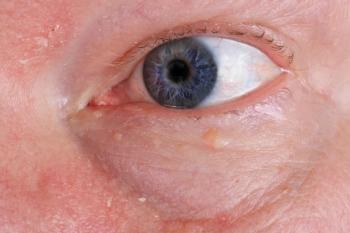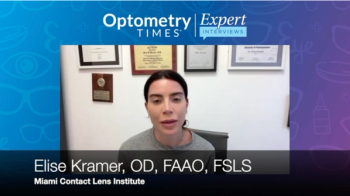
Study finds association between teprotumumab and hear impairment
The researchers identified 940 teprotumumab-associated adverse events that included 84 hearing-related adverse events. The first was reported to the FDA in April 2020.
Teprotumumab (Tepezza, Horizon Therapeutics), approved by the FDA to treat thyroid eye disease, has been associated with hearing impairment, according to researchers from the University of Alabama, and patients should be warned about this adverse effect. Gerald McGwin Jr., MS, PhD, Cynthia Owsley, PhD, MSPH, and Matthew G. Vicinanzo, MD, reported their results in Ophthalmic Plastic Reconstruction Surgery.
The authors explained that accumulating case reports and series have suggested that teprotumumab may significantly increase the risk of hearing impairment that, in some cases, does not resolve.
They searched the United States FDA Adverse Event Reporting System for adverse effects associated with the drug that was prescribed to treat autoimmune thyroiditis, endocrine ophthalmopathy, and hyperthyroidism.
The researchers identified 940 teprotumumab-associated adverse events that included 84 hearing-related adverse events. The first was reported to the FDA in April 2020.
“A comparison group of 32,794 nonteprotumumab adverse events was identified with 127 hearing-related adverse events reported. Use of teprotumumab in patients with thyroid conditions was associated with a nearly 24-fold (proportional reporting ratio [PRR] 23.6, 95% confidence interval [CI]: 18.1–30.8) increased likelihood of any hearing disorder (p<0.0001),” the investigators reported.
The association was specifically elevated for bilateral deafness (PRR: 41.9; 95% CI: 12.8–136.9), Eustachian tube disorders (PRR: 34.9; 95% CI: 4.9–247.4), hypoacusis (PRR: 10.1; 95% CI: 7.6–13.3), and tinnitus (PRR: 8.7; 95% CI: 6.2–12.1).
The investigators advised that patients be informed of the increased risk of hearing-related impairments and receive audiometry before, during, and after treatment.
Reference
McGwin G, Owsley C, Vicinanzo MG. Teprotumumab-related hearing loss: a large-scale analysis and review of voluntarily reported patient complaints to the Food and Drug Administration (FDA). Ophthalmic Plast Reconstr Surg. 2024; DOI: 10.1097/IOP.0000000000002668
Newsletter
Want more insights like this? Subscribe to Optometry Times and get clinical pearls and practice tips delivered straight to your inbox.













































